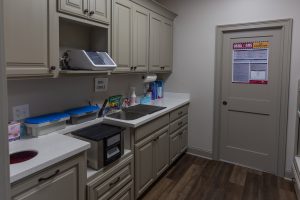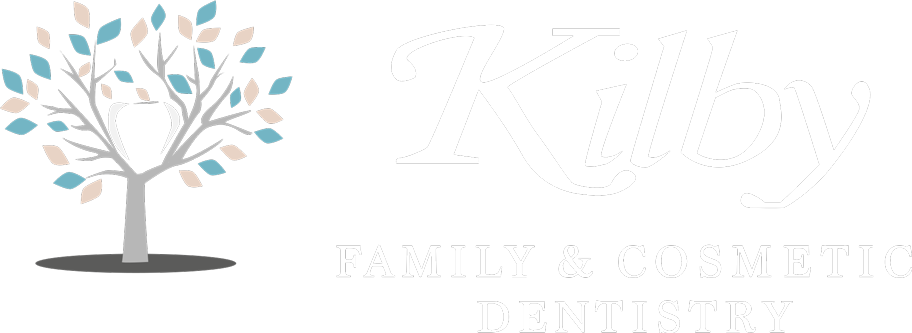 Oral appliances can be used to treat a number of conditions. Oral appliances are ideal as they provide gradual improvement or instantaneous protection.
Oral appliances can be used to treat a number of conditions. Oral appliances are ideal as they provide gradual improvement or instantaneous protection.
Here at Kilby Family and Cosmetic Dentistry, we offer oral appliances which are used for a variety of conditions. These include:
Custom Sports Mouth guards
The custom designed dental mouth guards that we provide at Refresh Dental offer far better protection and comfort over alternatives such as off the shelf or take home sports guard kits. This is because our sports mouth guards are engineered to accommodate your unique bite, and can be designed to accommodate your individual needs (such as leaving adequate room for changes in your dentition while undergoing orthodontic work).
Snoring and Sleep Apnea Appliances
At Kilby Family and Cosmetic Dentistry, we can fabricate a custom designed Snoring and Sleep Apnea appliance to reduce snoring and help you and your family gain a good night’s sleep. Our Appliances work by opening the airway passage at the back of the throat, and preventing your jaw from dropping back during sleep and obstructing the airway.
Night Guard/ Occlusal Splints for Bruxism or TMJ disorders
These custom-fitted night guards or occlusal splints are made by Kilby Family and Cosmetic Dentistry from high quality acrylic, and are worn to absorb the force of clenching and grinding – protecting your teeth from further damage. This treatment can also relieve the soreness in your jaw joints and chewing muscles caused through continual strain whilst sleeping.
For more information on our oral application services, call (229) 247-0200.
Custom Sports Mouthguards

Athletes wear knee pads, shoulder pads, chest protectors, helmets, gloves, mitts, special shoes, you name it. But while they’re busy protecting their bodies, many athletes forget to guard one of the most vulnerable areas—the mouth and teeth!
A mouth guard should be worn during most sports activities—especially when a lot of contact is involved: football, basketball, baseball, hockey. Mouth guards not only help prevent tooth loss and damage, but they may block bruising of the lips and cheeks as well.
Although you can buy mouth guards over the counter at sporting goods and drug stores, the American Dental Association recommends having yours custom-fitted. It’s more comfortable (so you actually wear it), allows for easier breathing and speaking, offers the best protection, and can be fabricated with different designs and colors to match your favorite team!
What does "NTI" stand for?

Nociceptive (relating to the perception of things that could be harmful)
Trigeminal (the nerve that controls the major muscle of mastication)
Inhibition.
The NTI appliance is a tiny, clear-plastic device fits over your front teeth at night and makes clenching virtually impossible. In a few days or weeks, your clenching reflex is suppressed. Morning headache pain, neck pain, sore jaw, and other related pain associated with involuntary intense clenching usually begins to resolve and disappear.
What does clenching and/or grinding my teeth have to do with the use of an NTI device?
The high intensity contractions of your powerful jaw muscles become painful and the force generated causes pain to the majority of the surrounding tissues, joints, cartilage and other muscles. The NTI device is worn while you sleep.
Subsiding and/or reducing the symptoms that are directly related to the degree and longevity of each individual's condition will no doubt vary. However, it is not unusual for some patients to report significant relief overnight; others usually within two to four weeks. Generally speaking, by reducing the intensity and amount of the clenching, you can effectively and efficiently minimize the source of the pain - in many cases, in just a few days.
Does insurance cover the cost?
Usually dental or medical insurance plans will help pay for the service, but all plans are different. Coverage should be discussed with our office staff.
Is there a difference between the NTI and the traditional dental nightguard device or TMJ splint?
Yes. Traditional flat-plane splints and nightguard devices provide a surface for you the "bite down on." New studies show, however, that these devices can actually increase the intensity of your clenching reflex, often to over 104% of your normal bite. Some patients have actually broken their devices!
High-intensity clenching has recently been found to be the real cause of the problem. With the advent of the revolutionary NTI device, we can begin to solve the real problem: actually preventing your back teeth from clenching intensely and coming into contact with each other. Stop intense clenching, stop the source of the pain.
Night Guard for Bruxism

Grinding and clenching your teeth, known as bruxism, can lead to cracked teeth, pain, and even tooth loss. A Night Guard can help to treat this condition.
Bruxism can affect your quality of life. If you are suffering from this condition, give us a call. We can create a treatment plan for you to help your condition and make your life more comfortable.
Bruxism
Bruxism is the medical name for teeth grinding or clenching. Some people who suffer from bruxism are not even aware of the exact problem. You might have dental problems, an aching jaw, or even a cracked tooth and not realize that the problem is that you have been grinding your teeth.

While some teeth grinding and clenching is caused by stress or anxiety, most teeth grinding occurs at night. If left untreated, the results can be quite problematic including:
- Headaches
- Jaw pain
- Loose teeth
- Fractured teeth
- Worn teeth
- Hearing loss
- TMJ/TMD
Treating bruxism is usually approached from a few different angles. If your bruxism is stress related, it might be helpful for you to visit a counselor and work on stress-reduction strategies to help you relax. Sometimes, muscle relaxants can help the situation.
Many people with bruxism use a night guard while they are sleeping. This is a custom-fitted appliance that will help protect your teeth from the grinding. At Kilby Family Dentistry, we can help set you up with a mouth guard and teach you additional tactics that can help you cope with your bruxism such as:
-
Cutting back on caffeine
-
Avoiding alcohol
-
Avoiding chewing on things that are not food
-
Jaw relaxation techniques
Temporomandibular Joint Disorders

Temporomandibular joint disorders occur when the temporomandibular joint of the jaw, the place where your lower jaw is hinged to your skull, becomes injured or inflamed. This condition may be referred to as either TMJ or TMD.
TMJ/TMD can have multiple causes. Some of the most common are:
- Bruxism
Dislocation of the cushioning disc within the joint - Arthritis
Injury to the jaw including blunt trauma and whiplash
This condition is quite painful. If you are suffering from any of the following symptoms, you should be evaluated for TMJ/TMD:
-
Pain in your face, jaw, neck, or shoulders, especially when chewing, speaking, or yawning
-
Clicking and popping in the jaw joint
-
“Locking” of the jaw
-
Swelling
-
Fatigue in the jaw
-
Difficulty chewing
Treatment for TMJ/TMD can range from measures such as heat and ice packs to steroid injections and muscle relaxers. Some people with TMJ/TMD benefit from the use of antidepressant or anti-anxiety medications.
Occlusal Splints are helpful for people with TMJ/TMD. The splint keeps your teeth slightly separated and prevents them from clenching, which can exacerbate the condition. If your condition is more severe, you may require a splint to hold your jaw in place so that the joint can heal. Call us today to set up a treatment plan for your TMJ/TMD. You shouldn’t have to suffer when help is available.

